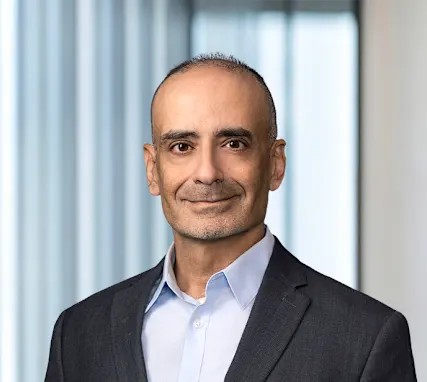Authors
Key takeaways
- ADGM rules provide framework for establishing and operating DLT foundations.
- The rules cover a DLT foundation’s entire life cycle and its officers’ rights and duties.
- The rules put ADGM at the forefront of regulating DAOs and reinforce the region as a crypto hub.
In April 2023, we wrote about the Abu Dhabi Global Market’s (ADGM) consultation paper on the creation of specialised foundations for decentralised autonomous organisations (DAOs).
On 2 November 2023, the ADGM formally released the Distributed Ledger Technology Foundations Regulations 2023 (DLT Regulations), which provide a legal framework for the establishment and operation of distributed ledger technology (DLT) foundations.
A DLT foundation is a legal entity that can hold and manage digital assets for a specified purpose, such as supporting a DLT network or protocol.
Registering a DLT foundation
To register a DLT foundation, the founder must submit a charter and other documents to the registrar of DLT foundations (Registrar), and pay a fee. The charter must specify the objects, activities, governance, and beneficiaries of the DLT foundation, as well as the rights and obligations of the tokenholders. Tokenholders are persons who hold or control tokens issued by the DLT foundation, and who have certain voting and information rights.
A DLT foundation must have a minimum initial asset value of US$ 50,000, and may receive additional endowments from the founder or other sources. The assets of the DLT foundation are separate from those of the founder, the councillors, the guardian, and the beneficiaries, and are not subject to foreign laws that may affect their ownership or transfer.
Governance requirements
The governance of a DLT foundation consists of a foundation council, a guardian, and the tokenholders.
- The foundation council is responsible for managing the assets and affairs of the DLT foundation in accordance with the charter and the DLT Regulations. The council must have at least two and no more than 16 councillors, who are subject to certain qualifications and duties. The council has wide powers of management of the DLT foundation’s assets and is responsible for implementing the foundation’s objectives and for compliance by the foundation and its various bodies with the foundation’s charter and applicable obligations. Notably, the foundation council has certain veto rights over the decision of other organisational and governance bodies of the foundation.
- The guardian is appointed by the founder or the council, and has the role of ensuring that the council acts in accordance with the objects of the DLT foundation. The guardian also has certain powers and duties, and may be removed or replaced by the council or the tokenholders.
- The tokenholders can approve or reject certain matters affecting the DLT foundation, such as amendments to the charter, migration, or dissolution, by passing qualified or ordinary resolutions.
Reporting obligations
A DLT foundation must keep accounting records and prepare annual accounts, which must be audited by an independent auditor. The accounts must be published on the DLT foundation’s website and filed with the Registrar within six months of the end of the financial year. The Registrar has the power to review, revise, or order the correction of the accounts, and to impose fines for non-compliance.
A DLT foundation may migrate to or from the ADGM, subject to certain conditions and approvals. A DLT foundation may also be dissolved by the court, by the Registrar, or by the tokenholders, in certain circumstances. If a DLT foundation is struck off the register, it ceases to exist as a legal entity, and its assets may be forfeited to the ADGM. However, a DLT foundation may be reinstated on the register within six years of being struck off, if the court or the Registrar is satisfied that it is just and equitable to do so.
Conclusion
The DLT Regulations aim to provide a clear and flexible legal framework for DLT foundations, which are expected to play a key role in the development and innovation of DLT in the ADGM and beyond.
More significantly, the DLT Regulations have provided the first formal framework to support DAOs. In the recent past, DAO frameworks in Wyoming and the Marshall Islands gained some traction, but those structures were ultimately not as popular given the lack of regulatory clarity in the relevant jurisdictions surrounding the activities of DAOs.
The DLT Regulations have been introduced in the ADGM which has already put in place, since 2018, a dynamic and adaptable legal framework for the regulation of digital assets and their service providers. A thorough study of each individual DAO and its activities is essential to understand the overall regulatory impact of their activities under applicable ADGM laws and regulations.
Client Alert 2023-250




